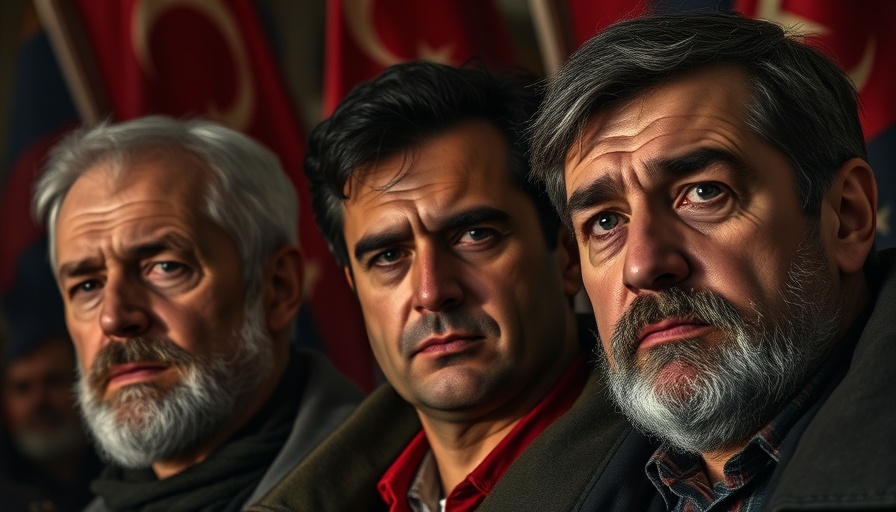
The Silent Struggle: Armenian Christians in Modern Times
In a world increasingly aware of global injustices, the plight of Armenian Christians often goes unnoticed. Armenians, a people with a rich heritage and deep-rooted Christian faith, continue to face pressures and attacks that seek to erase their identity. This issue was explored in detail in the video Why They Want To Wipe Out Armenian Christians, which highlights not only the historical contexts but also the modern ramifications of these challenges.
In Why They Want To Wipe Out Armenian Christians, the discussion dives into the threats faced by this community, prompting a deeper analysis of their current situation and historical context.
Historical Context: The Weight of a Painful Past
To understand the present struggles of Armenian Christians, it is essential to delve into their turbulent history. The Armenian Genocide of 1915 saw the systematic extermination of approximately 1.5 million Armenians by the Ottoman Empire. This dark chapter in history set a precedent for religious intolerance and ethnic cleansing that has left lasting scars. Many Armenian Christians today are the descendants of those who survived, carrying forth not just a heritage of resilience but also the burden of memory.
Current Events: A Crisis in the Making
Today, Armenian Christians find themselves in precarious situations, particularly in regions such as Nagorno-Karabakh. Following a recent war and the establishment of a fragile peace, the Armenian population is under constant threat from neighboring nations that seek to promote ethnic and religious homogeneity. The attack on their sanctuaries and places of worship exacerbates the feeling of vulnerability among these communities, invoking a sense of urgency that needs global attention.
Emotional Resonance: Why This Matters
For believers, the plight of Armenian Christians is not merely an international issue; it represents a challenge to the very values of compassion and support that form the foundation of Christian faith. Empathy drives believers to engage in prayer, advocacy, and awareness-raising activities. For skeptics and seekers, this can compel a deeper examination of faith’s role in social justice and equity, making it a multifaceted cause that resonates across faith boundaries.
Contrasting Perspectives: Not Just Black and White
While many condemn the actions against Armenian Christians, it is crucial to also understand the complexities of regional politics and religious tensions. Local grievances often fuel broader conflicts, and considerations such as historical animosities and political narratives can complicate the situation. Acknowledging these layers can foster dialogue and empathy rather than simple condemnation, offering a pathway for peace rather than further division.
Opportunities for Action: What Can We Do?
In a world where it may seem daunting to tackle global issues, there are several ways individuals and communities can take action. Raising awareness through social media, supporting charities focused on aiding displaced Armenians, or simply engaging in prayer can amplify their voices. Church leaders and ministry workers can create spaces for discussions around this topic, encouraging education that promotes understanding and advocacy.
A Call for Unity and Support
As we reflect on the circumstances faced by Armenian Christians, our response as individuals and communities matters. It is vital to support those who are oppressed and to provide avenues for international awareness. Understanding the cultural and religious implications fosters a compassionate response that goes beyond the superficial.
As David Ngo, a biblical studies expert, notes: 'Faith must translate into action. The stories of those who suffer often mirror our own spiritual journeys. By standing with those in need, we exemplify the teachings of Christ.'
In conclusion, the ongoing struggle for Armenian Christians calls for a united front from believers and skeptics alike. By engaging with this issue, we not only uncover rich layers of theological insight but also embody the essence of faith itself—a commitment to love, justice, and advocacy for those who cannot fight for themselves.
 Add Row
Add Row  Add
Add 








Write A Comment